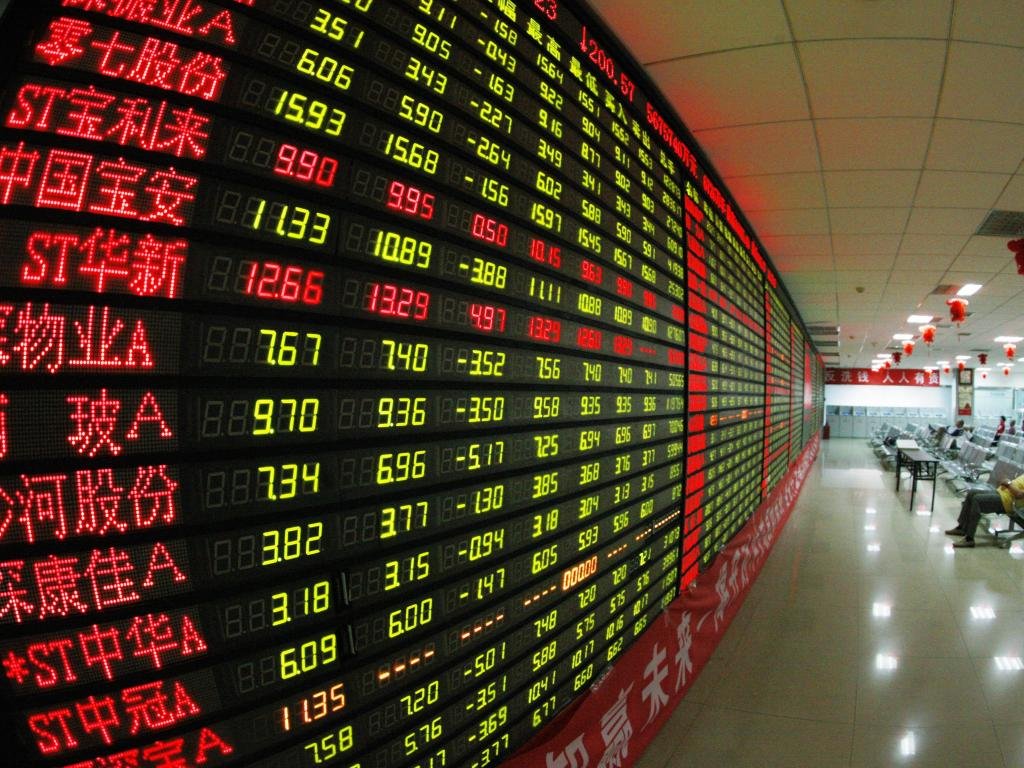
Research
Date Published
- April 2025
- March 2025
- February 2025
- January 2025
- December 2024
- November 2024
- October 2024
- September 2024
- August 2024
- July 2024
- June 2024
- March 2024
- February 2024
- October 2023
- March 2023
- February 2023
- January 2023
- November 2022
- October 2022
- January 2022
- November 2021
- October 2021
- August 2021
- July 2021
- March 2021
- September 2020
- August 2020
- July 2020
- February 2020
Filters to only view publications from a particular program:
The Implications of Donald Trump’s Presidency for India’s Economy
The doors of President Trump’s second term opened with full force, raising eyebrows and ruffling feathers both domestically and abroad. In less than one hundred days, one hundred executive orders were passed in the newly redecorated Oval Office, aiming to fulfill the administration’s “America First” promises. Three of these executive orders issued tariffs against China, Mexico, and Canada, backed by the nascent usage of the International Emergency Economic Powers Act (IEEPA). Despite suspensions and fervent economic fears, China and Canada retaliated with tariffs on agricultural products and energy respectively, sparking international concerns over a potential trade war. Amidst this backdrop of butted heads and gritted teeth, the gaudy Air India One touched down on American soil on February 12, 2025, as Prime Minister Narendra Modi arrived in Washington to discuss the future of relations with the United States.
Rethinking China’s Data Center Strategy for AI dominance: Cooling Methods, Energy Efficiency, and Heat Recycling
With the proliferation of communication and network technology, data centers have become increasingly more important to maintain low latency and increase the pace of online services. This growth is driven by expanding needs for data processing, storage, and digital communication, which will naturally lead to higher energy consumption. Without sufficient investment in data centers and promotion of efficient energy use, generative AI is unlikely to realize its full potential. It is estimated that AI could unlock between 2.6 and 4.4 trillion dollars throughout the global economy if data center electricity demand is met. As a result, energy efficiency has become the primary concern for operators, surpassing even security.
It’s High Time for Bhutan and the U.S to Establish Diplomatic Relations
Bhutan, situated between India and China, is nicknamed the “Hidden Kingdom,” given the lack of attention it receives from the media and policymakers abroad. However, a few weeks ago, Bhutan appeared in the news cycle for an odd reason: the American travel ban. This incident highlights the need for Bhutan to consider establishing formal diplomatic relations with the U.S. Having an embassy in Washington D.C will make it easier to handle these types of issues going forward.
The Impact of a Second Trump Term on US-India Relations
On November 5, 2024, Donald Trump was reelected the next president of the United States. Indian Prime Minister Narendra Modi congratulated “his friend” for winning reelection on X (Formerly Twitter). However, regardless of the cordial personal rapport between the two leaders, a Trump presidency has the potential to create issues for India, including human rights, China, Russia, and Iran, many of which stem from Trump’s erratic personality.
Ethiopia and BRICS
On January 1st, 2024, Ethiopia officially joined BRICS, after being invited in August 2023. BRICS (named after its founding members: Brazil, Russia, India, China, and South Africa) is an intergovernmental organization that can be broadly understood as a political and economic counterweight to Western-dominated organizations like the OECD, the International Monetary Fund, and the World Bank. What does this mean for Ethiopia and how will this benefit the BRICS nations?
Wang Huning - from Shanghai Scholar to China’s Top Policymaker
On September 11th, Wang Huning, a Politburo standing committee member and the CCP's leading ideologist, was appointed as the chairman of the China Council for the Promotion of Peaceful National Reunification (CCPPNR). The appointment of Wang has given spectators a good opportunity to poke into the organizational structure of the CCP’s central subdivisions and personal backgrounds of a Politburo member who is one of the most powerful politicians in China.
Contrasting Chinese and Korean Reactions to Japan’s Fukushima Wastewater Plans
After the devastating 2011 Tōhoku earthquake and tsunami, Japan’s Fukushima nuclear power plant was all but destroyed, leading to a desperate effort to prevent a full blown nuclear disaster. The Japanese government has been pumping water into the power plant in order to cool the radioactive debris and prevent further nuclear meltdown. This solution has in itself generated more problems. What is to be done with the radioactive wastewater? The Japanese government has ultimately decided to dilute the amount of tritium, the element that irradiates this water, to an acceptable level and release the diluted but still radioactive water into the ocean over the course of the next 30 years.
China Philippines Relations
On February 2nd, 2023, just two days before the U.S. shot down a suspected Chinese spy balloon, the Republic of the Philippines and the United States announced the increase in American military presence in the country amid rising tensions in the South China Sea. This event marks yet another escalation in an area that has seen two Taiwan Straits Crises, overlapping territorial claims, and many naval skirmishes
Implications of the Balloon Incident
From a trade war to human rights crisis, the deterioration of the U.S.-China relations have accelerated in recent years. In the latest of a series of geopolitical crises, a Chinese high-altitude surveillance balloon was detected in U.S. airspace on the 2 February, just 48 hours before Secretary of State Antony Blinken was scheduled to travel to Beijing to meet Chinese President Xi Jinping.
China’s Potential Influence on Petrol Prices: Comparing 2020, and 2022
Throughout the development of the global economy, supply and demand of goods can often be characterized as countervailing. Prices are often determined by the proportion between production and consumption rather than the numerical difference between the two forces. This framing can be useful when determining the overall costs to producers and consumers alike when focusing on key commodities like petroleum. China’s covid era has demonstrated the relationship between supply and demand in the context of international and domestic policy. China’s original lockdown in 2020 primarily demonstrated the role of consumption, whereas the 2022 COVID emergence crisis highlighted the potential role of production in the global petroleum market.
Real Development or Debt Trap? - Understanding China’s Belt and Road Initiative
On the second leg of a tour of Africa aimed at promoting American regional investment, U.S. Treasury Secretary Janet Yellen emphasized the importance of addressing Zambia’s heavy debt burden with China. Zambia became Africa’s first pandemic-era sovereign nation to default when it failed to make a $42.5 million bond payment in November 2020. Negotiations over how to deal with the debt load have been ongoing.
Reasons Behind & Implications of China’s Population Decline
The world’s most populous country has begun to shrink: China’s National Bureau of Statistics reported a decline in its population of nearly one million people in 2o22. This is the first year where China's birth rate was at a net negative since the Great Leap Forward: an economic experiment that resulted in widespread famine in the 1960s. There are three factors which contribute to China’s declining populations: lasting consequences of the one-child policy, changing attitudes towards marriage and childbirth, and the expenses associated with raising children.
China’s Looming Crises of the New Year: Relatively Low Economic Growth and Nearly Unprecedented Demographic Decline
For the past three decades, the world has seen the People’s Republic of China (PRC) as a youthful economic juggernaut on a one-way trip to surpass the United States as the world’s predominant economic force. However, this January the PRC has reported that in 2022 the country’s economy had only grown by 3% , while its population had shrunk by approximately 850,000 people, marking China’s first population drop since the Great Famine of Mao Zedong’s Great Leap Forward.
20th CCP National Congress Special Issue 04: China’s Strategic Energy Issue
The recent 20th National People’s Congress suggested the importance of the state’s role in transitioning the country towards a green economy. The congress highlighted its plans to bolster its financing, resources, research, and conservation in the green energy sector. China currently pays close attention to the green energy sector in the new energy policy since it relates to China’s national security.
20th CCP National Congress Special Issue 03: Politically Loyal and Preparing for Conflict.
This October, the Chinese Communist Party held its 20th National Congress which further cemented President Xi Jinping’s (习近平) control over China’s economy, society, and military. President Xi is fully aware of the looming conflicts brewing along the Sino-Indian border and within the East and South China Seas and their destabilizing potential. To address these threats to Chinese security interests, he seeks to modernize, expand, and affirm the allegiance of the Peoples’ Liberation Army (PLA) and ensure that China is capable of fighting and winning regional wars. It is important for international observers and leaders to note the implications of President Xi’s consolidation of power over the Chinese military and its effect on the PLA’s policies, strategies, and capabilities. We may soon enter a dangerous and militarized period of great power competition and the PLA will continue to be a crucial factor.
20th CCP National Congress Special Issue 03: China’s Socio-Economics issues
In the economic section of the 20th Party Congress Report, Chinese President Xi Jinping repeatedly mentioned the “Dual Circulation Model.” Since its initial proposal in May 2020, this economic development model has been openly advertised by Xi both domestically and internationally, including at the 3rd China International Import Expo, which took place in November 2020 in Shanghai. What is the Dual Circulation, and what exact goals is it set to achieve?
20th CCP National Congress Special Issue 02: China’s Zero Covid Policy and Beyond
Our Fellow, Howen Yu has had the opportunity to interview his own father–a Beijing based volunteer worker acutely impacted by the zero-covid policy during his stay in Tibet. The OICP have compiled a series of personal accounts from him during the 3-month long lockdown. Through these accounts, we attempt to illustrate the impacts of China’s strict covid restrictions towards normal civilians.
20th CCP National Congress Special Issue 01: China’s Zero Covid Policy and Beyond
Nearly three years into the pandemic, China is sticking with strict COVID-19 containment policies that have led to a string of lockdowns around the nation, economic damage, and widespread frustration among Chinese citizens. As reported by researchers at Oxford University who developed the Oxford Coronavirus Government Response Tracker (OxCGRT) to measure the strictness of government policies, China currently has the strictest containment measures. The Chinese government has yet to announce when or how it will ease its restrictions; how will China exit its zero-Covid policy?
China: Inexorable Rise or Inevitable Decline?
Is China destined to overtake the United States and become the greatest power on Earth? Or is is doomed by its own ambition to fall?
From Tianhe To Artemis: Developments To Become The Next Space Superpower
Read about the most recent developments by both China and the United States as they race for dominance in space.






















